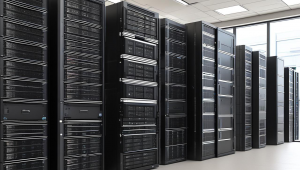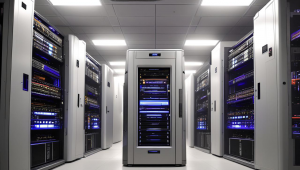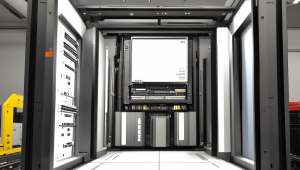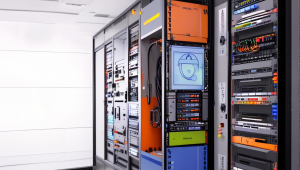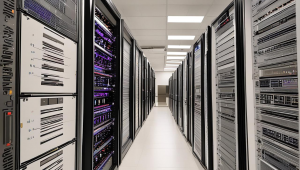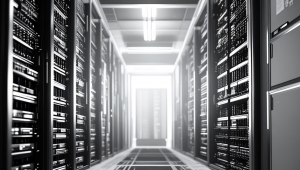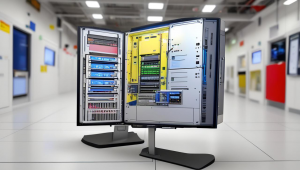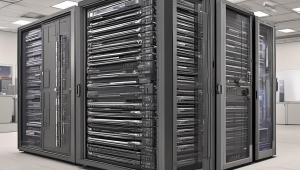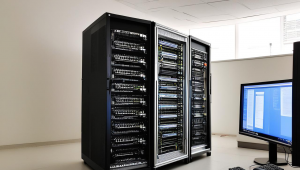In the era of rapid technological advancement, the question of whether servers will still be needed in the future is a topic that has sparked extensive discussions. Servers have long been the backbone of the digital world, providing the necessary computing power, storage, and networking capabilities for various applications and services. However, with the emergence of new technologies such as cloud computing, edge computing, and artificial intelligence, the role and significance of servers are being re - evaluated.
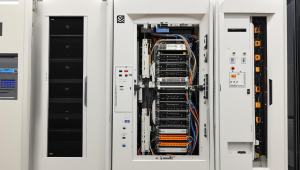
Cloud computing has been a game - changer in the digital landscape. It allows users to access computing resources over the internet, eliminating the need for on - premise servers in many cases. Companies can rent storage space, processing power, and software services from cloud providers on a pay - as - you - go basis. This model offers numerous advantages, including cost - efficiency, scalability, and ease of management. Small and medium - sized enterprises, in particular, have benefited greatly from cloud computing as they can avoid the high upfront costs of purchasing and maintaining servers. For instance, startups can quickly scale up their operations by increasing their cloud - based resources without having to worry about the physical limitations of local servers.
Edge computing is another technology that is challenging the traditional server model. Edge computing brings data processing closer to the source of data generation, such as IoT devices. Instead of sending all data to a central server for processing, edge devices can perform some of the computational tasks locally. This reduces latency, improves response times, and decreases the amount of data that needs to be transmitted over the network. For example, in a smart city scenario, traffic sensors can yze traffic flow data at the edge, making real - time decisions to adjust traffic lights. This local processing at the edge reduces the reliance on large - scale central servers.
Artificial intelligence also plays a role in this transformation. AI algorithms often require significant computing power for training and inference. With the development of AI - optimized hardware and distributed computing frameworks, it is possible to perform AI tasks without relying solely on traditional servers. Some AI models can be deployed directly on edge devices, enabling them to make intelligent decisions independently.
However, despite these emerging technologies, servers will still be indispensable in the future. First of all, not all data can be stored and processed in the cloud. There are concerns about data privacy and security. Sensitive data, such as personal health information and corporate trade secrets, may need to be stored and processed on - premise servers to ensure better control and protection. For example, financial institutions handle large amounts of sensitive customer data. They often maintain their own servers to comply with strict regulatory requirements and safeguard customer information.
Secondly, servers are still crucial for high - performance computing (HPC) applications. Scientific research, such as climate modeling, drug discovery, and astrophysics, requires massive computing power that can only be provided by large - scale servers. These applications involve complex simulations and data ysis that far exceed the capabilities of cloud - based or edge - computing solutions.
Moreover, servers serve as a backup and disaster - recovery solution. In the event of a cloud service outage or a natural disaster affecting edge devices, having a local server can ensure the continuity of business operations. Companies can store critical data and applications on servers as a safeguard against unforeseen circumstances.
In addition, the development of new technologies will also create new demands for servers. As the Internet of Things (IoT) continues to expand, there will be an exponential growth in the amount of data generated. While edge computing can handle some of this data, central servers will still be needed to aggregate, yze, and manage this vast amount of information. For example, in a smart factory environment, thousands of sensors collect data on production processes. Servers will be required to process and make sense of this data to optimize production efficiency.
Finally, servers are also essential for building and maintaining digital infrastructure. They are used in data centers to support the operation of websites, applications, and online services. Without servers, the modern digital economy, which relies heavily on e - commerce, social media, and online entertainment, would come to a standstill.
In conclusion, while cloud computing, edge computing, and artificial intelligence are changing the way we use and think about servers, servers will still have a vital role in the future. They will co - exist with these new technologies, complementing each other to meet the diverse needs of the digital age. Whether it is for data security, high - performance computing, backup, or digital infrastructure, servers will continue to be an integral part of our technological ecosystem.

